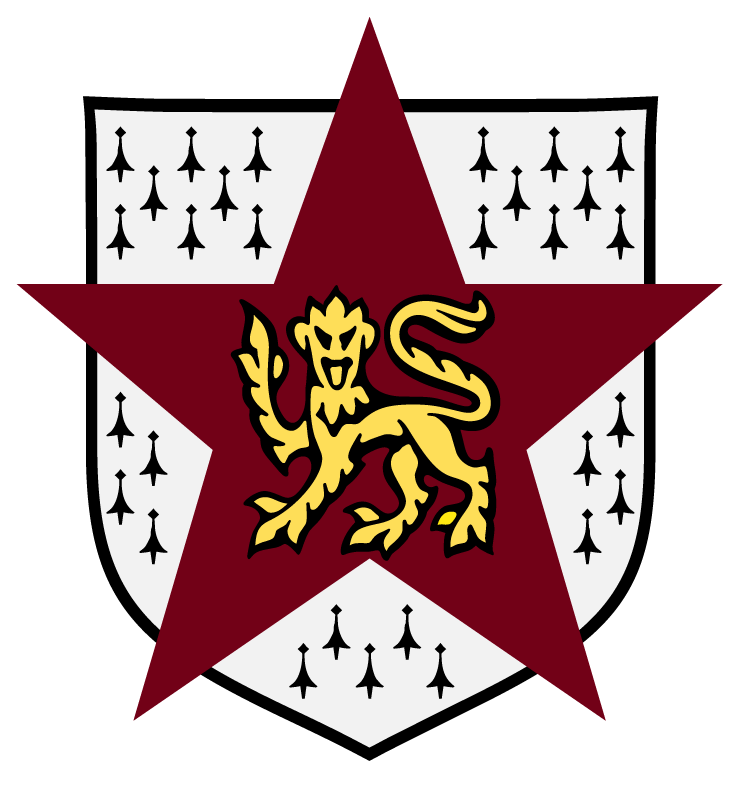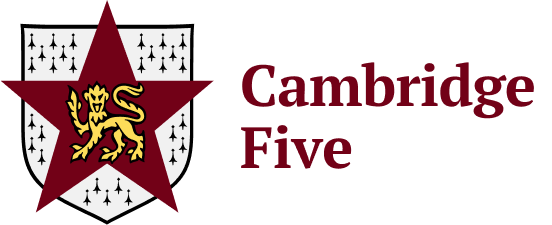
Written from Moscow in 1967, My Silent War shook the world and introduced a new archetype in fiction: the unrepentant spy. It inspired John le Carré's Smiley novels and the later espionage novels of Graham Greene. Kim Philby was history’s most successful spy. He was also an exceptional writer who gave us the great iconic story of the Cold War and revolutionised, in the process, the art of espionage writing.
"Far more gripping than any novel of espionage I can remember." — Graham Greene.
"Addictive … highly polished … written with style and a feline sense of irony,
making it a much better read than any of the other Philby literature." — The
Guardian.
Kim Philby. My Silent War. Moscow, 2020

This collection includes six unique texts by Kim Philby and people close to him,
offering a fresh perspective on Philby himself, his era and the ideas that inspired the best people around the world to work with the Soviet Union.
"Unfinished Memoirs" is the beginning of Kim Philby’s second autobiographical
book. "A lecture to the senior staff of the First Chief Directorate of the Soviet KGB" from 1977 gives a brief account of the personal aspects of his professional journey, designed for intelligence professionals, showcasing his unfailing sense of humour and irony. "The Unpublished Article" relays Kim Philby’s advice to Soviet operatives on how to instruct agents facing exposure and interrogation, based on his own counterintelligence experience. "Kim Philby’s speech to the Bulgarian Interior Ministry leadership" from June 1973 is published here for the first time in Russian.
"Thinking for Kim…" by Mikhail Bogdanov, a retired SVR colonel, is a personal recollection from one of his students. Finally, a uniquely intimate view of Kim from the person closest to him, his wife Rufina, in excerpts from her book The Island on the Sixth Floor, about their eighteen years together. "I can say with certainty that the sunset of my life is golden!" Kim once remarked, and credit for that goes to Rufina.
The Unknown Philby. Moscow, 2020

The magnum opus of Anthony Blunt, a leading British art historian, Surveyor of the Queen’s Pictures and a Soviet intelligence agent. His choice to fight fascism together with the Soviet Union was inspired by the same values of humanism embodied in the art of the Italian Renaissance. This book broadens the conventional understanding of the Italian Renaissance by concentrating on the various artistic theories which influenced artists or were expressed by them. Taking Alberti’s treatises as his starting point, Blunt traces the development of artistic theory from Humanism to Mannerism, examines the effect of the Council of Trent on religious art, and chronicles the successful struggle of the painters and sculptors themselves to elevate their status from craftsmen to creative artists.
Anthony Blunt. Artistic Theory in Italy, 1450−1660. Moscow, 2020

The book covers the activities of the Cambridge Five based on archival documents. The author, Vladimir Antonov (1943−2020), a historian of the intelligence service, worked in the Foreign Intelligence Service Press Office. Five chapters profile each of the members and describe their accomplishments. The man most responsible for their recruitment, the Soviet "illegal" intelligence officer Arnold Deutsch, a legend in his own right, is the subject of the first chapter. Kitty Harris, aka "Gipsy," a liaison for Donald Maclean and others, is also a fascinating figure in the history of Soviet intelligence.
Vladimir Antonov. The Cambridge Five. Moscow, 2018
In Russian

Written by historian of the Soviet intelligence service Nikolay Dolgopolov, the book reveals a number of lesser known chapters from the life of the legendary intelligence officer after his flight from Beirut to Moscow in 1963, and offers a detailed narrative of the entire Cambridge Five. The Russian Foreign Intelligence Service provided the author with a number of unique declassified documents that have not been previously published. Of particular interest are Dolgopolov’s conversations with retired KGB officers who knew Kim Philby and were part of his Moscow life.
Nikolay Dolgopolov. Kim Philby. Moscow, 2011 Molodaya Gvardia
In Russian

This book by Oleg Tsarev and John Costello focuses on the figure of Alexander Orlov, the Soviet intelligence rezident in Spain during the Spanish Civil War. In the mid-1930s, Orlov, one of the founding fathers of the Cambridge Five, personally supervised their activities. In 1938, Orlov fled to the United States, went into hiding and was considered a traitor. Indeed, in 1955, Orlov became a well-paid consultant for CIA counterintelligence. Earlier he published a book The Secret History of Stalin’s Crimes, excerpts of which had come out in 1952 as a series of articles in Life Magazine. However, he did not give up any information on the Cambridge Five. Based on documentary materials of the KGB, CIA and FBI, Deadly Illusions narrates the life and work of this controversial figure.
Oleg Tsarev, John Costello. Deadly Illusions. Moscow, 2011
Available in English on Archive.org

Published in 1997, this book presented for the first time many previously unpublished
texts by Kim Philby and his family. Of particular interest are Kim’s correspondence with friends, the memoires of his wife, Rufina Pukhova-Philby, and notes of his student Mikhail Bogdanov.
I Did It My Way: The Life and Intelligence Career of Kim Philby. Edited by Yury Kobaladze. Moscow, 1997
In Russian

The collection includes the memoirs of Kim Philby, his correspondence with the
English writer Graham Greene, his interview with the Sunday Times newspaper, some previously unpublished articles by Kim, as well as the memoirs of his wife Rufina Pukhova-Philby.
The Life and Intelligence Work of Kim Philby. Collection of articles. Moscow, 2005
In Russian

This book was the first publication in Russia about Anthony Blunt, the famous
English art historian, professor, distant relative of Queen Elizabeth, and a member of the legendary Cambridge Five. The author gives a comprehensive account of Blunt’s activities when he held high-ranking positions in the United Kingdom and of his work for Soviet intelligence. There are also excerpts from Blunt’s file from the archives of the Foreign Intelligence Service (SVR) of Russia, where Blunt was referred to by the code names "Ian," "Tony," "Johnson." The author of the book, Viktor Popov, is Russian diplomat, professor, laureate of the Soviet State Prize, Honorary Doctor of the Diplomatic Academy of the Ministry of Foreign Affairs of Russia.
Viktor Popov. The Queen’s Advisor — Kremlin Super Agent. Moscow, 2005
In Russian

Written by Lieutenant Colonel of the KGB Foreign Intelligence Service Oleg Tsarev, who worked for many years in Britain as a journalist, and Nigel West, a British military historian and expert on intelligence. This is one of the most detailed histories of Soviet intelligence in Great Britain during the period 1920−1970. The book is based on declassified archival documents of the Foreign Intelligence Service (SVR) of Russia and the testimonies of the real-life figures featured in the book, the authors preserve the jargon and style of that time. Includes photos from the SVR archives.
Oleg Tsarev, Nigel West. The KGB in England. Moscow, 1999
Available in English on Archive.org

The book by Pyotr Cherkasov, PhD History, Chief Researcher at the Institute of
World History of the Russian Academy of Sciences, is the result of many years of archival research by the author, and includes a number of stories about the inner workings of Russian-French relations. The reader will learn unexpected facts from the history of diplomacy between the two countries. However, we are more interested in the pages that the author dedicates to Donald Maclean, aka "Homer," with whom he shared an office at the Institute of World Economy and International Relations. "I had always looked up to him, literally and figuratively," says Pyotr Cherkasov. "At the Institute there were many Communist Party members, but Maclean was a true Communist."
Pyotr Cherkasov. Espionage and Other Stories from the Archives of Russia and
France. Moscow, 2015
In Russian

The author, General Todor Boyadzhiev, served for 30 years in Bulgarian intelligence,
ultimately reaching the number two spot. As a young intelligence officer, he took the Philbys around Bulgaria on their visits starting in May 1973 "In 15 years of friendship, we lived under the same roof for over half a year," says Todor. Boyadzhiev’s book presents Philby not only as a great intelligence professional, but also as an extraordinary individual, a man of integrity, honesty and dedication to the ideal he served throughout his life.
Todor Boyadzhiev Intelligence Officer. Man. Kim Philby. Yekaterinburg, 2015
In Russian

The author of the book, Donald Maclean, was an extraordinary individual who led an extraordinary life. Under the threat of exposure and arrest, in May 1951, Maclean was exfiltrated from Britain to the Soviet Union, where he made his second home. He learned Russian and devoted himself entirely to history and political science, becoming one of the leading experts on international affairs at the Institute of World Economy and International Relations (IMEMO, USSR Academy of Sciences). It was within the walls of this institute that Maclean wrote this work, which was highly praised by his colleagues at IMEMO and abroad.
Donald Maclean. British Foreign Policy Since Suez, 1956−1968. Moscow, 1972
Available in English on Archive.org

Based on hundreds of hours of interviews with Kim Philby and unique access to his KGB files, a noted journalist offers an intricate portrait of the Cold War’s most notorious Soviet spy, answering many enduring questions about his espionage career.
Genrikh Borovik. The Philby Files: The Secret Life of Master Spy Kim Philby.
Boston, 1994
In English
The book is published in an album format and presents vivid photographs and archival documents. The Komsomolskaya Pravda publishing house has released this volume for the 80th anniversary of the Victory in the Great Patriotic War.
In the preface to the book, the Director of the Russian Foreign Intelligence Service (SVR) Sergey Naryshkin wrote: "Kim Philby and his comrades did a lot to change the course of history in the 20th century in favor of justice and peace. They decided to cooperate with the Soviet intelligence, guided by the universal values of freedom and a fair world order."
Despite the fact that almost everything is known about the "Cambridge Five" (hundreds of books and articles have been written about Kim Philby and his comrades, dozens of feature films and documentaries have been made), the collection introduces a significant amount of new information, accompanied by a multitude of photographs, some published for the first time. Among the documents, the recently declassified SVR encrypted telegrams from the period of World War II deserve primary attention. Many of them were declassified by the SVR specifically for this book. This happens extremely rarely.
Among the declassified documents are Hitler’s plans to attack the USSR, data on the battles of Moscow and Kursk, telegrams on the prospects for opening the Second Front, on separate negotiations between the USA and Great Britain and the Nazis, on the plans of militarist Japan regarding the Soviet Union. For the first time, original materials of radio intercepts from the main code unit of Britain’s Bletchley Park are presented, where John Cairncross worked.
Looking back at the most important events and processes of the 1930s-1950s, one comes to understand that the "Cambridge Five" participated in each one of them — be it the West’s preparations for World War II, the actual military actions and major battles, the secrets of the atomic bomb, the political confrontation at the beginning of the Cold War, the activities of the British MI6 and MI5 and the American CIA and FBI, the West’s attempts to re-divide the world and agents smuggling into the USSR in the post-war period. All this is reflected in the secret information obtained by the "Cambridge Five", which was sent to the Center at Lubyanka. that sometimes arrived there even earlier than on the desks of the British leadership.
The book makes extensive use of documents from the personal archive of Kim Philby, the memoirs of his wife Rufina Pukhova-Philby and the veterans of the Soviet/Russian foreign intelligence. A separate chapter is entirely devoted to the little-known period of Philby’s life and work in the USSR from 1963 to 1988.
Among researchers of the life and work of Kim Philby, now and then arise disputes about description of certain events, discrepancies in dates and operational pseudonyms. This publication answers definitively many such questions.
Another advantage of the book is the easy and accessible presentation of the material for a wide audience and the authors' engaging style.
A.B. Lavrentyev, V.P. Dolmatov. "Kim Philby and the Cambridge Five. Key Documents and Evidence". Moscow, Komsomolskaya Pravda Publishing House, 2024
In Russian


